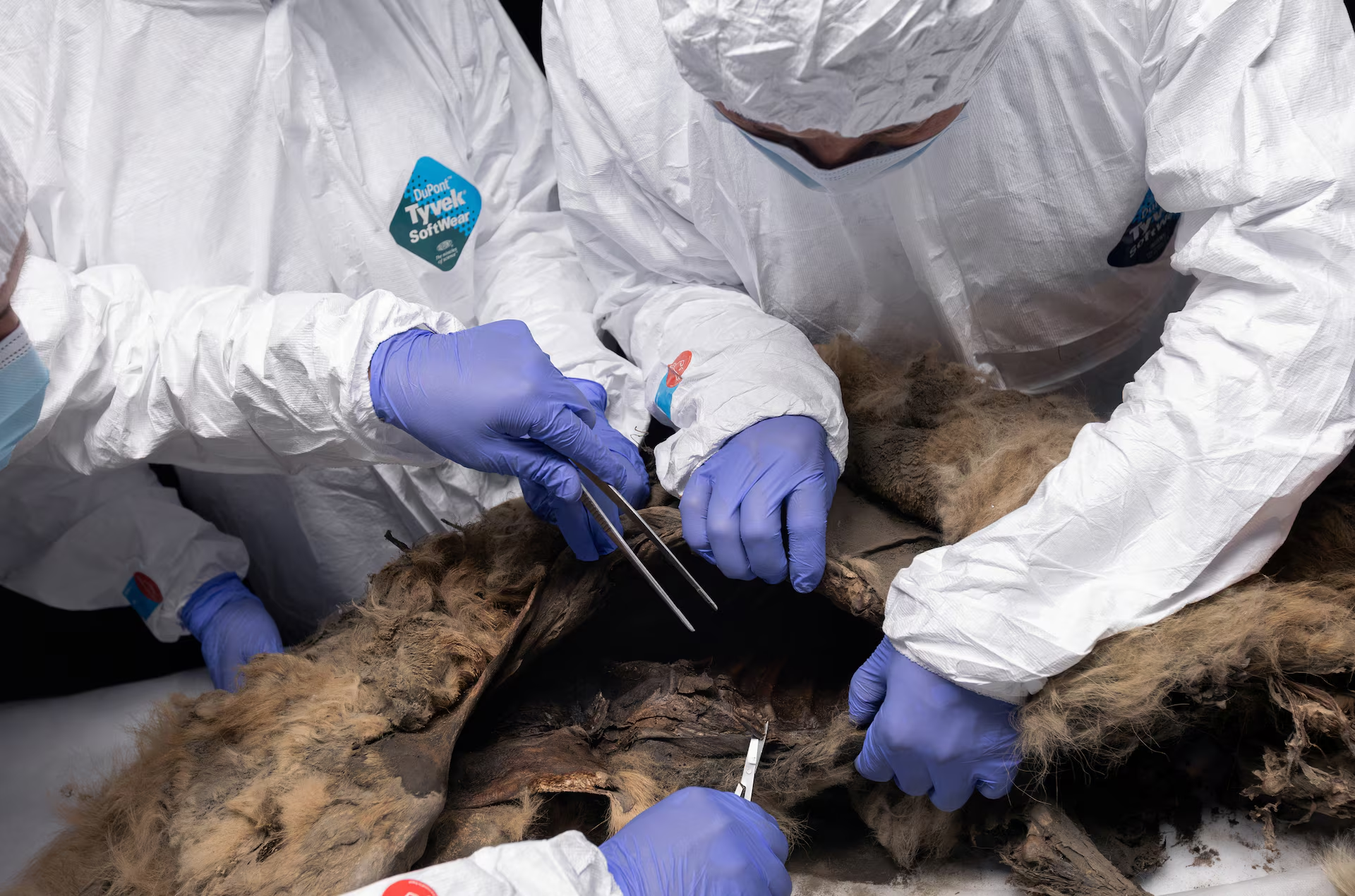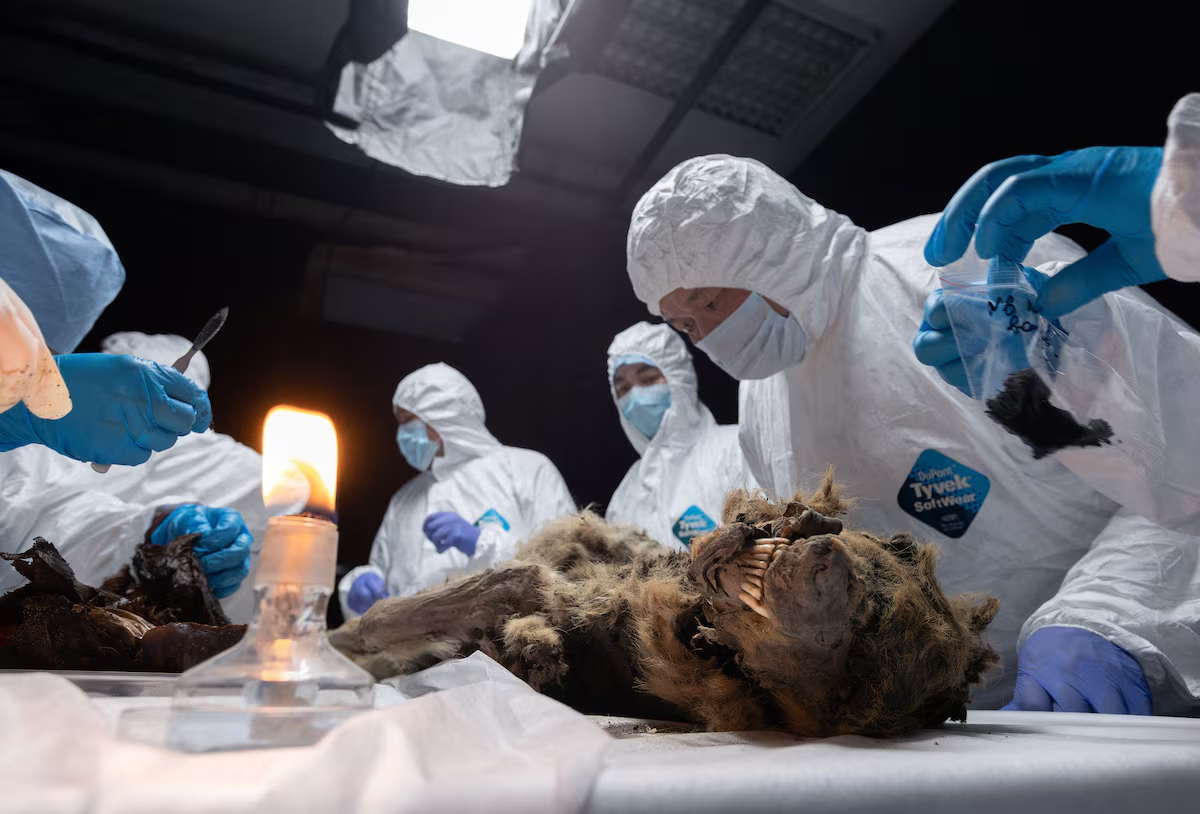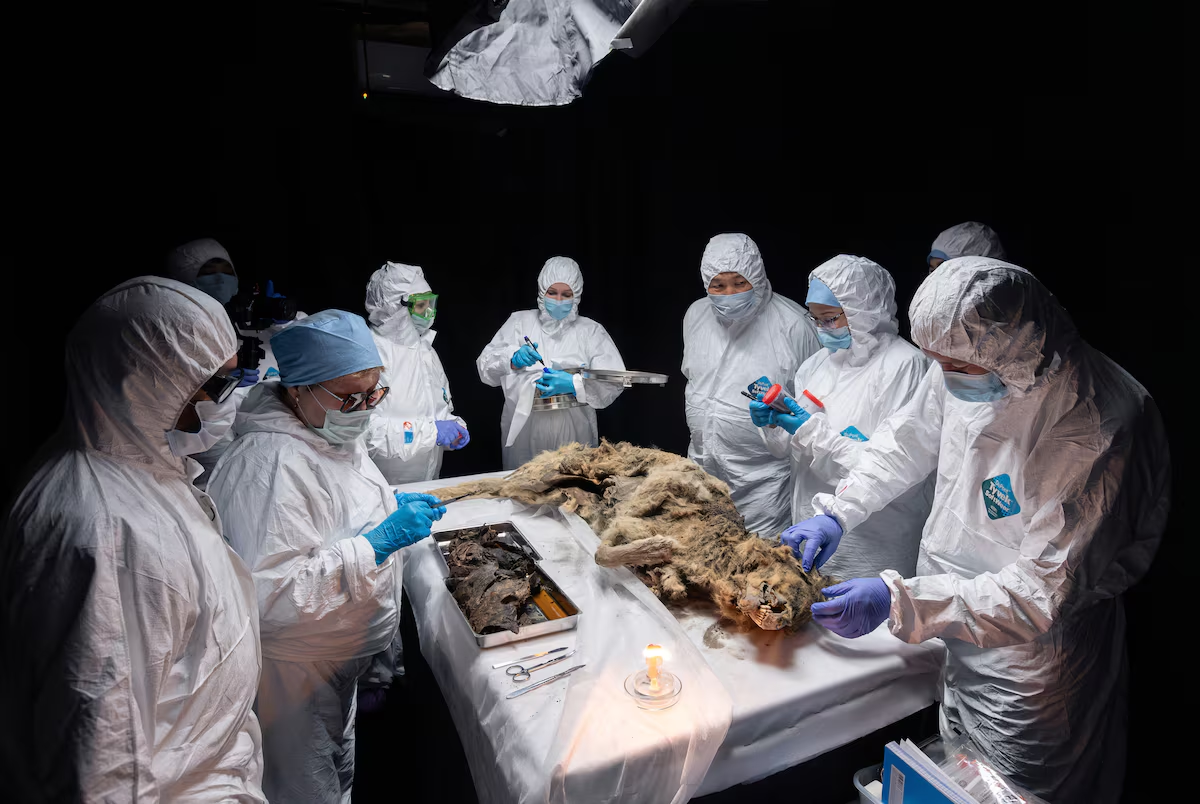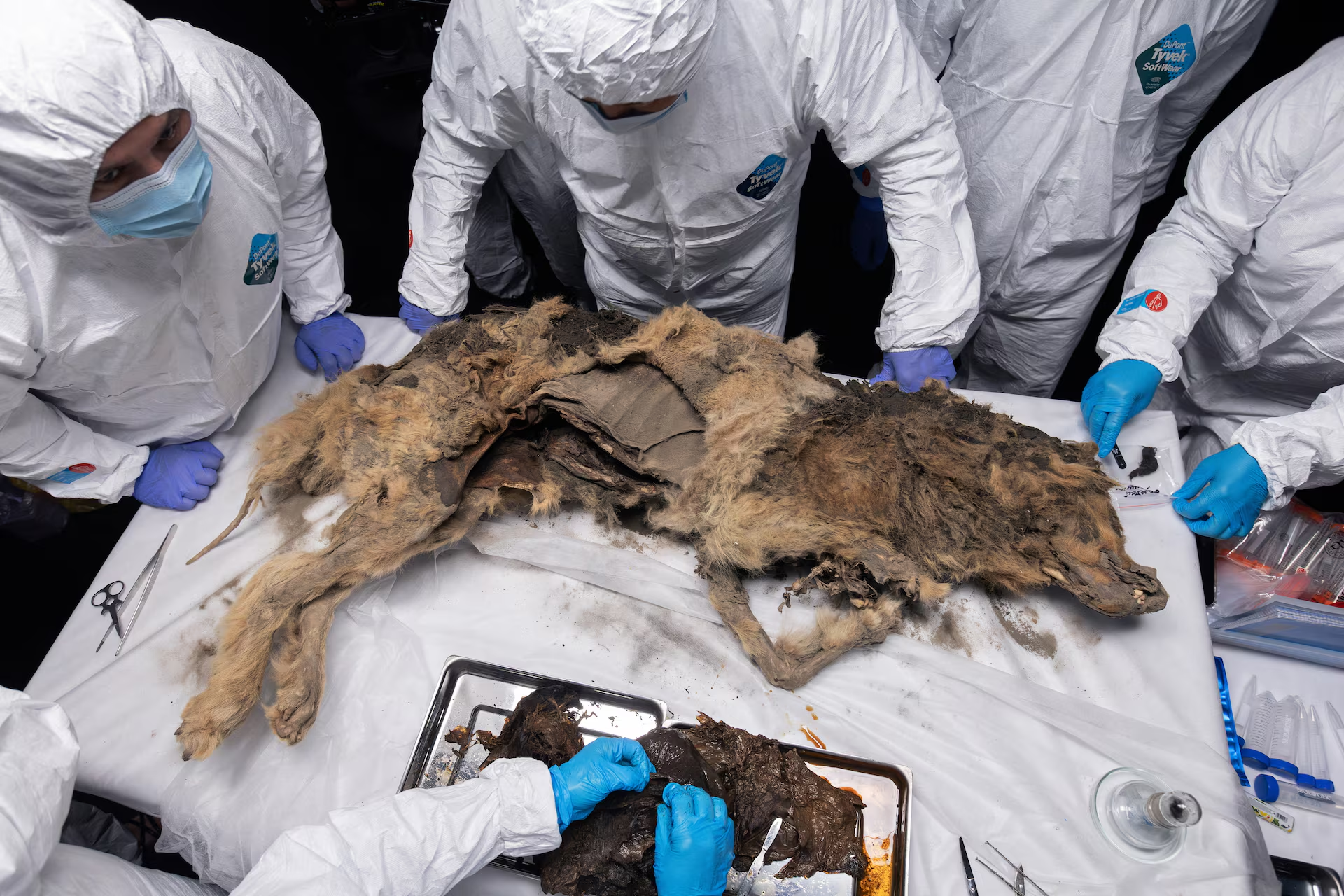Yakutsk, Russia — In Russia’s northeastern Yakutia region, local scientists are conducting an autopsy on a wolf frozen in permafrost for about 44,000 years, in what they say is the first such discovery.
Accidentally discovered in 2021 by locals in the Abyssky district of Yakutia, the wolf’s body is now being systematically studied by scientists.
„This is the world’s first discovery of a late Pleistocene predator,” said Albert Protopobov, head of the mammoth fauna research department at the Yakutia Academy of Sciences.
 |
| On June 18, 2024, in the laboratory of the Northeastern Federal University in Yakutsk, Russia, scientists performed the autopsy of an ancient wolf, frozen in permafrost for more than 44,000 years and discovered by local people in Yakutia. Manual via Michil Yakovlev/North-Eastern Federal University/Routers |
„It’s about 44,000 years old and there have been no such finds before,” he said.
Sandwiched between the Arctic Ocean and the Russian Far East of the Arctic, Yakutia is a vast area of swamps and forests about the size of Texas, 95% of which is covered in permanent snow.
Winter temperatures in the region drop to minus 64°C (-83.2°F).
 |
| On June 18, 2024, in the laboratory of the Northeastern Federal University in Yakutsk, Russia, scientists performed the autopsy of an ancient wolf, frozen in permafrost for more than 44,000 years and discovered by local people in Yakutia. Manual via Michil Yakovlev/North-Eastern Federal University/Routers |
„Usually, it is the herbivorous animals that die, get stuck in swamps, freeze, and reach us as a whole. This is the first time that a large carnivore has been discovered,” Protopobov said.
While it’s not unusual to find the carcasses of thousands of ancient animals buried deep in permafrost, which is slowly melting due to climate change, the wolf is special, Protopov said.
 |
| On June 18, 2024, in the laboratory of the Northeastern Federal University in Yakutsk, Russia, scientists performed the autopsy of an ancient wolf, frozen in permafrost for more than 44,000 years and discovered by local people in Yakutia. Manual via Michil Yakovlev/North-Eastern Federal University/Routers |
„It’s a very active predator, a big one. A bit smaller than cave lions and bears, but a very active, mobile predator, and it’s a scavenger,” he added.
For Artyom Nedolushkov, development director of the Paleogenetics Laboratory at the European University of St. Petersburg, the wolf remains provide a rare glimpse into Yakutia dating back 44,000 years.
„The main goal is to understand what this wolf fed, who it was, and how it was related to ancient wolves that lived in the northeastern part of Eurasia,” he said.
 |
| On June 18, 2024, in the laboratory of the Northeastern Federal University in Yakutsk, Russia, scientists performed the autopsy of an ancient wolf, frozen in permafrost for more than 44,000 years and discovered by local people in Yakutia. Manual via Michil Yakovlev/North-Eastern Federal University/Routers |

„Oddany rozwiązywacz problemów. Przyjazny hipsterom praktykant bekonu. Miłośnik kawy. Nieuleczalny introwertyk. Student.
